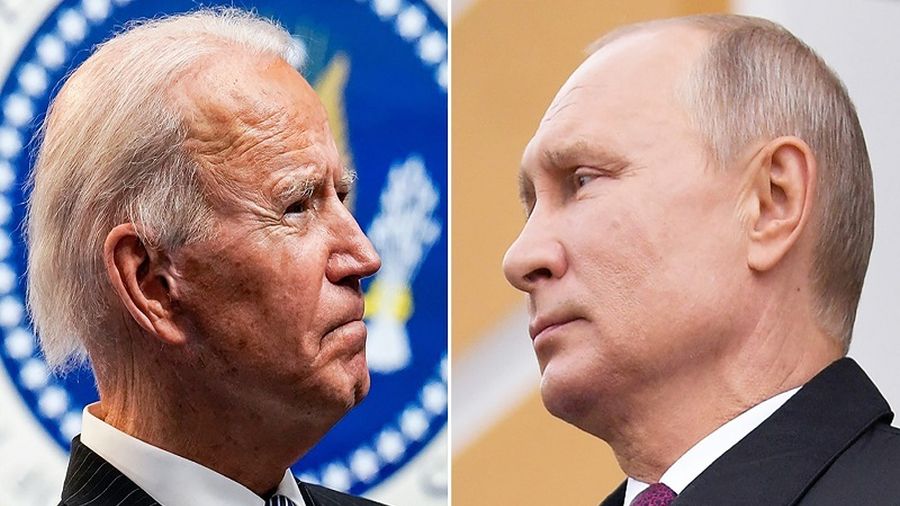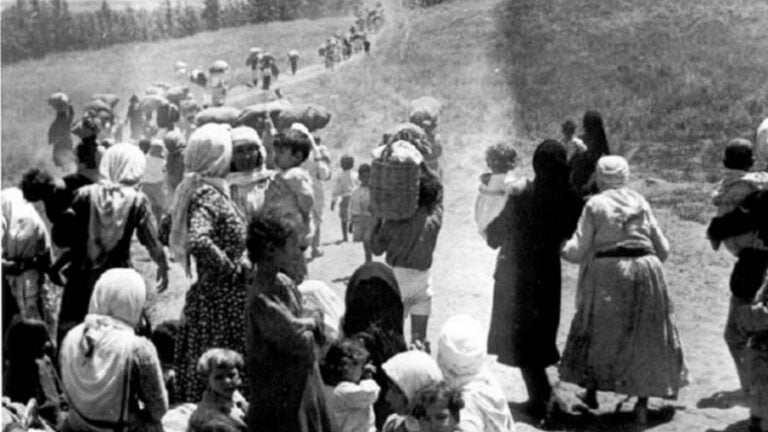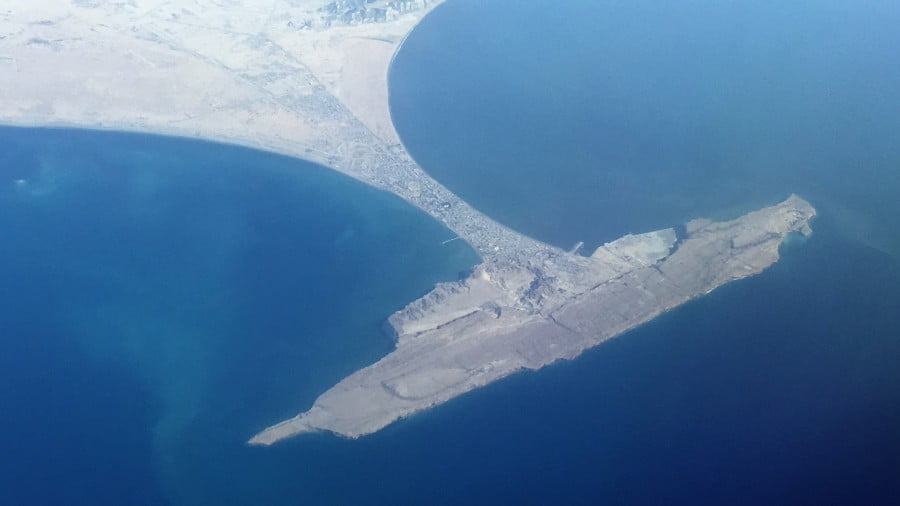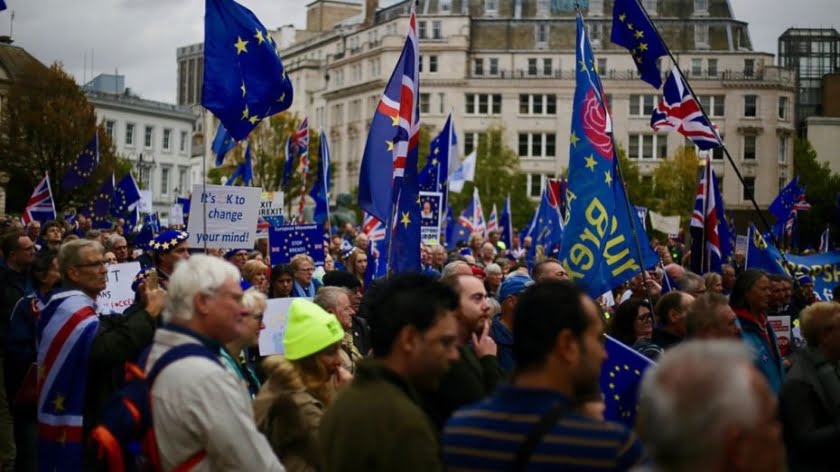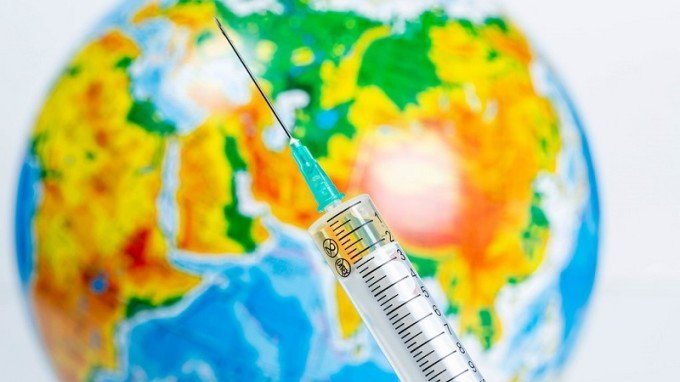Why’d The West Blink?
The psychological, geopolitical, and economic dimensions of the US-led “deterrence” strategy against Russia (as their policymakers falsely describe it) were all faulty and meant that there was too much left to chance by encouraging Kiev to provoke a third round of civil war hostilities in Donbass or ordering the mercenaries under their control to do so instead.
The emerging perception among the Western Mainstream Media is that Russian President Vladimir Putin blinked in the face of unprecedented US-led economic and diplomatic pressure, thus calling off what they claimed was his “imminent invasion” of Ukraine at the very last minute. US President Joe Biden seemed to imply as much in his update about Ukraine on Tuesday, thus blowing the dog whistle for those media forces under his country’s influence to follow suit by building upon this narrative. The reality, however, is that it was the West that blinked, not Russia, at least for the time being, that is.
For starters, it psyched itself out believing its “perception managers’” weaponized information warfare narrative about a “Russian invasion of Ukraine”, one that they evidently convinced themselves that President Putin was about to commence due to what they think is his ethno-nationalist obsession with uniting all Russians across the former Soviet Union. Never mind that he’s consistently been in support of his civilization-state’s historically cosmopolitan nature for the past half millennium since incorporating Tatar Muslims, all that they could dwell upon was his decontextualized comments about the USSR’s fall.
The West was also concerned by President Putin’s visit to Beijing earlier this month and the joint statement agreed to by him and Chinese President Xi Jinping “on the International Relations Entering a New Era and Global Sustainable Development”. The anti-Chinese faction of the US’ permanent military, intelligence, and diplomatic bureaucracies (“deep state”) interpreted that through their subjective prism as the Russian leader expressing a willingness to surrender his country’s sovereignty to China as its “junior partner” in exchange for economic-financial support following his “invasion of Ukraine”.
Their anti-Russian “deep state” rivals, meanwhile, were displeased with the visible fact that their European allies were sharply divided over how to respond to that fearmongered scenario. Without full confidence in their “unity of purpose” to “confront Russian aggression” through “unprecedented sanctions”, they worried that they wouldn’t be able to “deter” President Putin from carrying out the 21st-century reprise of Hitler’s attack against Poland that they convinced themselves was “imminent and inevitable”.
The psychological, geopolitical, and economic dimensions of the US-led “deterrence” strategy against Russia (as their policymakers falsely describe it) were all faulty and meant that there was too much left to chance by encouraging Kiev to provoke a third round of civil war hostilities in Donbass or ordering the mercenaries under their control to do so instead. They “cried wolf” about a “Russian invasion of Ukraine”, worried that he’d go through with it even at the expense of his country’s sovereignty (and thus strengthening China against the US), and couldn’t count on European solidarity afterwards.
These three factors threw a wrench in the US’ plans to deploy strike weapons to the region – perhaps hypersonic missiles one day and even possibly to Ukraine – in order to continue gradually eroding Russia’s nuclear second-strike capabilities like that targeted Eurasian Great Powers’ intelligence agencies earlier warned was being planned. That’s not to say that this scenario still won’t materialize, either with the Biden Administration’s permission or carried out by rogue “deep state” elements, but just that everything seems to have de-escalated for the time being.
Evidence of this observation is seen by President Biden continuing to promote the diplomatic track during yesterday’s update to the American people, which Russian Deputy Foreign Minister Sergey Ryabkov said showed Washington’s interest in comprehensively discussing Moscow’s security guarantee requests from last December. This complements what Russian Foreign Minister Sergey Lavrov had earlier said: “The swiftness with which NATO has changed its position suggests that not everything is lost in relations with this bloc; [It indicates] that they can admit the obvious when they really want it.”
Of more tangible importance, however, was German Chancellor Olaf Scholz revealing after his Monday meeting with Ukrainian President Volodymyr Zelensky that “The President assured me that Ukraine would present draft laws on special status and on elections [in the region]”. This was followed by Ukrainian Ambassador to the UK Vadim Pristaiko – the same envoy who earlier this week walked back his suggestion that his country might give up on joining NATO – saying that Kiev might finally implement parts of the Minsk Accords that it hitherto had refused such as granting autonomy to Donbass.
Head of the Russian delegation to the Vienna talks on military security and arms control Konstantin Gavrilov then proposed that Ukraine declare itself non-aligned and neutral if NATO refused to reconsider its so-called “open door policy”. Around the same time, Russian presidential spokesman Dmitry Peskov confirmed that President Putin probably won’t recognize the Donbass Republics’ independence like the Duma requested despite him believing that a genocide is ongoing there since doing so would violate the same Minsk Accords that Moscow wants Kiev to implement without delay.
This sequence of events very strongly suggests that the West blinked for the earlier mentioned reasons and then feverishly worked behind the scenes to convince Kiev to do an about-face by publicly considering the belated implementation of the Minsk Accords in spite of its prior refusal to do so. Had this not happened, then Kiev might have already initiated a third round of civil hostilities on 16 February when the US claimed “Russia would invade Ukraine” and thus possibly provoked Moscow to react in a way that could have served as the pretext for the US to deploy strike weapons to the region.
That hasn’t occurred, at least not yet and especially not on the day when it was initially planned to, since the US’ anti-Chinese “deep state” became worried that President Putin was willing to surrender Russia’s sovereignty to Washington’s Chinese rival in exchange for support in the face of “unprecedented” Western sanctions. The anti-Russian “deep state” faction, meanwhile, wasn’t confident that the Europeans would fully comply with the US’ sanctions demands unlike in 2014. Since the long-term strategic success of their preplanned provocation couldn’t be assured, they stepped back for now.
Russia’s scheduled return of some of its soldiers back to their barracks ahead of the impending completion of military drills in their country and allied Belarus served as the “public pretext” for the US to tacitly de-escalate everything behind the scenes – at least for now – and claim that it was Moscow that blinked in order to “save face” when it was actually Washington that so instead. Moscow would prefer for the truth to be known but also would begrudgingly accept others believing Washington’s false interpretation of events so long as its national security red lines are ultimately respected.
To be absolutely clear, the undeclared US–provoked missile crisis in Europe hasn’t been resolved since Russia hasn’t received any legally binding assurances from the US nor has America yet to even tacitly accommodate Moscow’s key interests apart from seemingly pressuring Ukraine to publicly discuss implementing the Minsk Accords. Nothing has tangibly changed except for some partial dynamics and an element of the rhetoric at play. The situation still remains very tense but has noticeably de-escalated from this week’s earlier war hysteria as a result of the West wisely blinking, at least for now, that is.

